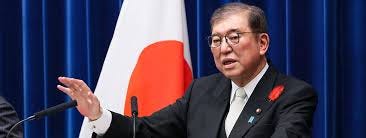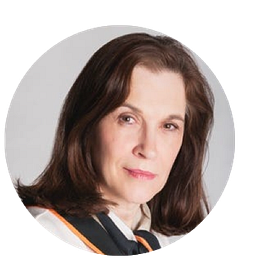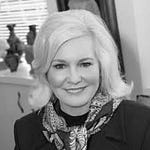❝ Japan is always interesting. If you're into finance and policymaking, Japan is spectacular.
Welcome to the 63rd episode of the Hale Report. My name is Lyric Hughes Hale, and I’m Editor-in-Chief of econVue and your host today, Wednesday, November 13, 2024. My guest is economist Jesper Koll, and our topic is Japan. We will be discussing how Prime Minister Shigeru Ishiba's recent election has introduced significant shifts in Japan's political and economic landscape.
Jesper Koll is a prominent economist and strategist specializing in the Japanese economy. We tend to forget it is still the world’s third largest with over $4T in annual GDP, one place ahead of India which has 11X the population. Japan’s per capital income is $40K per year, vs $34K in the US.
Since relocating to Japan in 1986, Jesper Koll has been an active participant in Japan’s financial sector. Over the past two decades, he has been consistently recognized as one of the top Japan strategists and economists, having worked as Chief Strategist and Head of Research for US investment banks J.P. Morgan and Merrill Lynch.
He currently serves as Expert Director for the Monex Group and the Japan Catalyst Fund, Japan’s first retail investor-based corporate engagement/activist fund. He is one of the few non-Japanese members of the Keizai Doyukai, the Japan Association of Corporate Executives.
Known for his optimistic perspective on Japan's economic future, Koll has authored several books in Japanese, including "Towards a New Japanese Golden Age" and "The End of Heisei Deflation." He also writes on Substack, and of course his moniker is Japan Optimist.
Topics Discussed
What is unique about Prime Minister Ishiba’s coalition?
Will expected new tariffs by the Trump Administration aimed at China have unintended consequences for Japan?
Could China sanctions affect Japanese corporate performance?
What strategies will the Ishiba coalition adopt to enhance Japan's defense capabilities, and how will this impact Japan’s economy?
What is the outlook for Japan's economy in the coming years?
What is Prime Minister Ishiba's stance on social issues such as gender equality?
How does PM Ishiba plan to address Japan's aging population and declining birth rates? What about immigration?
What progress has been made in corporate governance reforms within Japanese companies, and how are these changes influencing foreign investment and overall economic growth?
In what ways is Japan leveraging technological innovation to drive economic growth, and which sectors are leading this transformation?
Key Moments
The Nexus of Geopolitical and Economic Challenges
Koll highlights Japan's strategic position as a critical player in the US.-China conflict, explaining how two-thirds of Japanese corporate profits come from overseas operations and how Japan's reliance on both the US and China shapes its economic and political strategies. He emphasizes Japan's pragmatic approach to balancing these relationships and its emerging push for greater independence, including controversial discussions about nuclear capabilities.
Generational and Structural Shifts in Japan’s Workforce
Koll discusses the changing dynamics of Japan's labor market, noting the increasing empowerment of younger workers who are now leaving elite bureaucracies to join startups. He connects this shift to broader cultural changes, such as the move toward meritocracy in traditional seniority-based systems and the impact of labor scarcity, which is driving innovation, immigration, and altering corporate structures.
Japan’s Investment in Semiconductors and Quantum Computing
The discussion of Rapidus, Japan's initiative to revitalize its semiconductor industry, underscores Japan's ambitions to reduce reliance on Taiwan and become a leader in cutting-edge technologies. Koll expands on this by mentioning Japan's focus on other frontier technologies such as quantum computing and photonics, positioning these sectors as potential long-term investment opportunities in Japan’s evolving innovation ecosystem.
I often ask my guests, if given the choice of an economist or leader who inhabits this world or the next, who they would most like to invite to dinner. In Jesper’s case he replied immediately, the Emperor Shōwa. Certainly hard to think of a more consequential and fascinating guest for anyone interested in Japan’s modern history.
Many thanks to Jesper Koll for joining our podcast today, and to all the people behind the scenes who make econVue possible, especially our producer, Sam Fu.
If you’d like to subscribe to econVue as well as listen to our podcasts, please visit our website econVue.com and if you can, support us on Substack.
Lyric Hughes Hale
Lyric Hughes Hale serves as Editor-in-Chief of Econvue, which publishes a newsletter, econVue+. She hosts The Hale Report, a podcast series on global economics. She is Director of Research at Hale Strategic

















